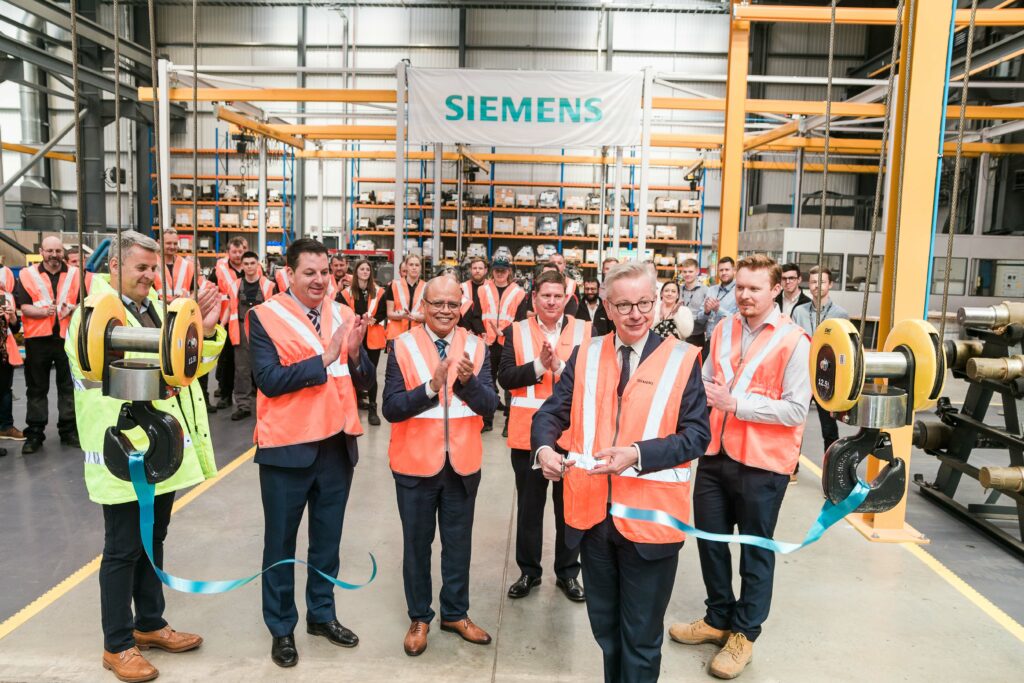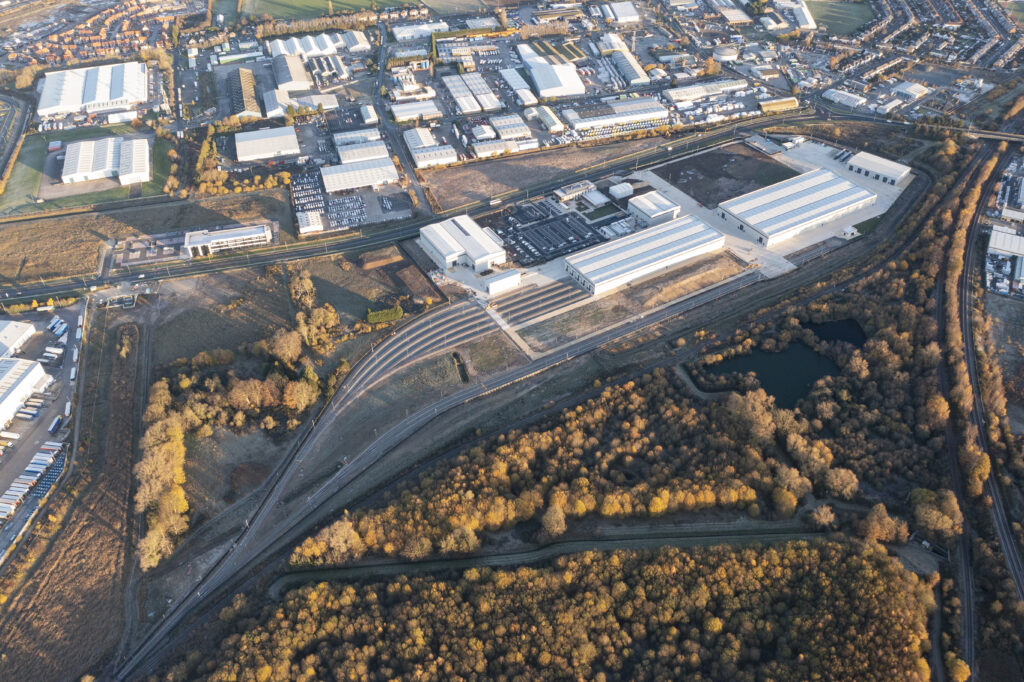Railstaff sat down with Siemens Mobility UK CEO, Sambit Sanerjee, to consider his career, his new role, and the company’s commitment to the environment and social responsibility.
Hi Sambit, thanks for joining us. To start, would you mind giving us a brief overview of your career to date?
I started working with Siemens in 1992 and I’ve been with the company for 28 years. Other than for a four-year break, I’ve worked for the company throughout my career. I began my career in Calcutta, India, before moving to the headquarters in Mumbai. I’ve also worked with the company in Germany, but have been based in the UK for the last 17 years. Here in the UK, I initially worked in the airport side of the business where I was responsible for the modernisation of baggage handling at Heathrow and Gatwick. In 2013 I moved into the role of finance director for the rolling stock and customer services side of the business, becoming managing director in 2019. In August this year, I became joint CEO of the business, along with Rob Morris.
Moving from airports to rail sounds like quite a jump. Are there any similarities between the two sectors?
Although they are completely different industries, they do share a similarity – safety. Operating an airport is a little like operating a depot. The safety risk points are different, but it’s the top priority for the business. There’s a similar level of scrutiny too. If, for instance, an airport’s baggage handling unit is not running well, you’ll soon get attention from the media about any delays caused. The same goes for trains not running on time. Aerospace was slightly ahead of the curve in terms of engineering innovations, but what we’re doing in rail is certainly very exciting, and rail is one of those industries that you never want to leave!
You’re now joint CEO of Siemen’s Mobility UK sharing the CEO role with Rob Morris, former managing director of Rail Infrastructure. How does sharing a role work at that level?
Rob and I have worked very closely together for some time. Our predecessor left at the end of December 2022, and we were both asked to carry on and lead the business. We both share a common strategy, which makes it much easier to execute business decisions. We also have a tremendous amount of respect for each other, our abilities, and our values, while giving each other the space to operate.
We have a saying: ‘Grow the business and grow the people’. We’ve always felt that if you keep your focus on the basics – i.e., health & safety, wellbeing – and looking after our 4,000 colleagues, then a high-performance culture will develop. We continuously strive towards this while providing a wide range of solutions to the UK rail industry, covering everything from infrastructure and signalling to rolling stock and depots.
We’ve both effectively been in this role since the end of last year, but now it’s official. There’s the topic of the board management to consider now, however, we’ve both worked in senior positions before and understand the dynamics of that. I think our partnership is working very well.

Now that you’re at the head of the company, what are the biggest issues you face? What challenges do you see on the horizon?
Right at the top of the list is uncertainty around projects. Whether that’s in the infrastructure, rolling stock, or customer service sectors, the industry needs certainty. That’s what we’ve been speaking about with the Government, the Department for Transport, and Network Rail.
We also think that because rolling stock has not been ordered for almost three years now, the time has come for a new wave of tenders to come up. It feels now that rolling stock procurement is starting, and although the competition is tough, that’s a good sign.
There are two things that we need to keep in mind. One is deliverability, the second is availability and distribution. Whovever wins the bid to deliver these trains, they need to be delivered on time and be reliable, so that operators can operate well. In the past we’ve seen delays of two to three years for trains coming into service. That’s something we need to keep in mind so we can deliver on promises and give value for money to the British public.
Downstream, the big challenge is the volatility that Brexit has brought in relation to the supply chain, which was compounded by the Covid-19 pandemic. Inflation is still high and so the cost of materials is skyrocketing. We are working together with our supply chain partners to find a balance, but this currently remains a major challenge.
Going back to your comments about certainty in the rail industry, can I ask your thoughts about the cancellation of Phase 2 of HS2?
I personally lobbied for HS2 from 2014 and have followed the project very closely. My view is that HS2 is a project that is generating employment opportunities for a great many people and will be an important infrastructure asset for the UK. I would have liked to have seen the project continue in a phased manner.
We understand the constraints of government finances, but the position of Siemens was that Phase 2 of HS2 should go ahead. It would have generated a lot of work, and we were bidding on five packages on the infrastructure side. We would have loved to have been able to contribute to the later stages. We were very active in late September in reaching out to ministers to emphasise the importance of the project.
The climate crisis is a huge concern which impact us all. What is Siemens Mobility UK doing to become more sustainable and help tackle rising carbon emissions?
As part of our global strategy to become a net-zero carbon company, we stopped producing diesel trains in 2016. We do still maintain diesel trains, but we haven’t manufactured any for seven years now. We will also not be manufacturing any diesel bi-mode trains, and we’ve informed the Government and Department of Transport of this decision. Battery bi-modes and Hydrogen bi-modes are the way forward, we believe. We are firmly on our way to achieving net-zero as a company by 2030 and we are not moving away from that.
We follow a framework called DEGREE, which is in practice globally across the business. This provides a 360-degree view of our environment, social, and governance priorities. Decarbonisation is a huge part of this programme and it stretches across both our own manufacturing activities, for example looking at sustainable materials to onsite renewable power supply, and right through to our giving supply chain targets for sustainability too.
Sustainability is a huge area of concern for our business. For example, just next to our new train manufacturing ‘village’ facility at Goole, Yorkshire, we have a wildlife reserve. We contributed £150,000 to the local council to restore the area, and it now boasts its own apiary which provides good quality honey. It’s a truly unique site.

In terms of social responsibility, how else is Siemens Mobility UK helping out locally?
There is a very strong emphasis at Siemens on equality, diversity, and inclusion, and we’re working particularly hard to encourage more women into engineering. As a result, we’re seeing a gradual improvement in the gender balance of our organisation. We’re also dedicated to upskilling our staff as well as creating opportunities for younger people.
At the moment, we currently have around 100 apprentices working for the business, taken from a wide catchment area. We also run internships and graduate programmes which are a great avenue to get into the company, and we also run a number of other initiatives, including our focus on getting school children interested in STEM subjects. We travel to various schools and colleges to encourage students to pick these areas of study, and work with organisations like Primary Engineering in Yorkshire, and this works as a feeder into our business.
Our customer service operations director, Matt Colclough, began his career as an apprentice. This is proof that our new starters can go on to achieve great things.
We have a great focus on supporting our local communities. For example, at our rail village in Goole, we support the local foodbank and donated an outdoor classroom to a local school creating room for engineering learning. And colleagues at our Glasgow depot just helped out on a WellChild project, building an accessible garden for a young girl.
Image credit: Siemens Mobility UK

